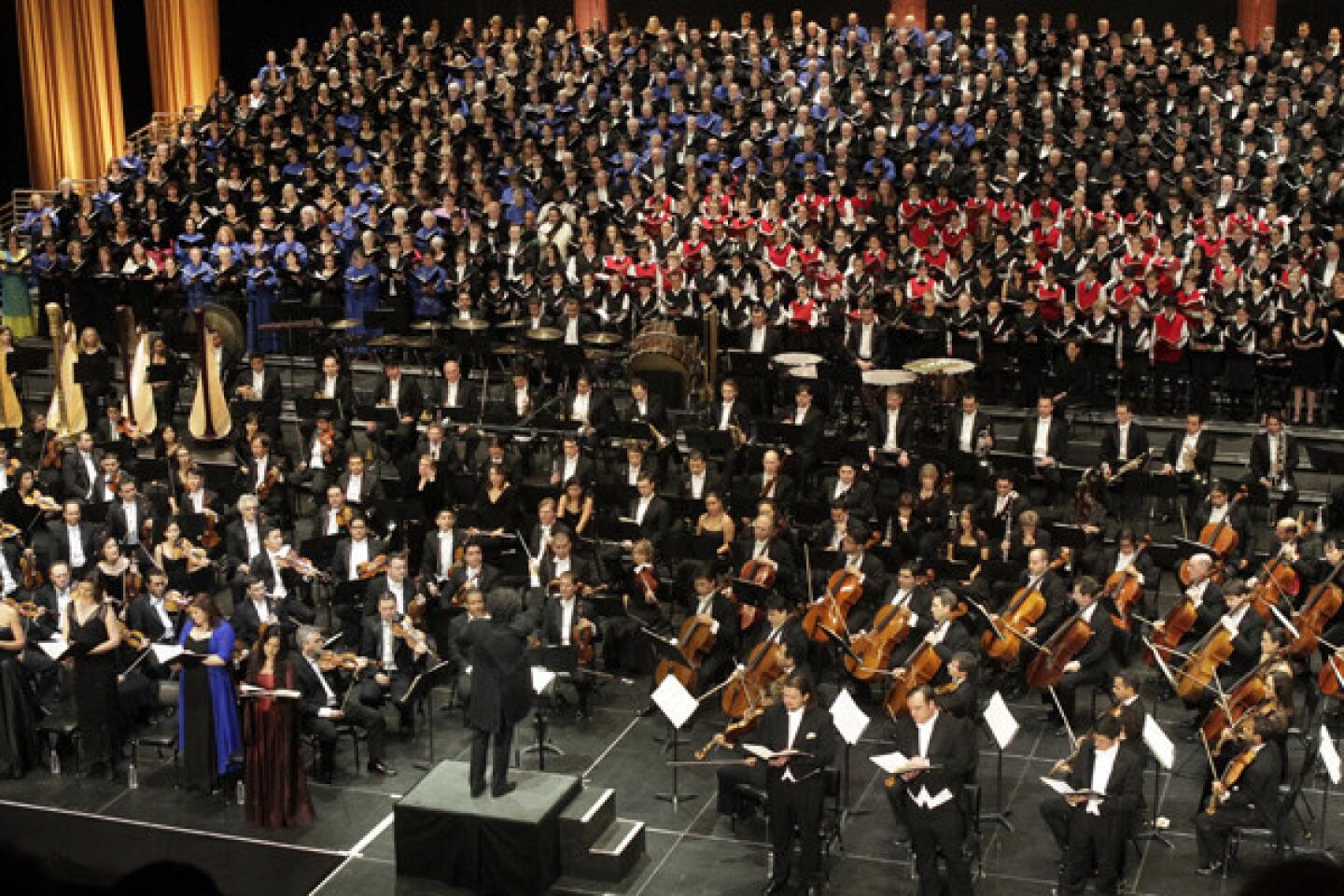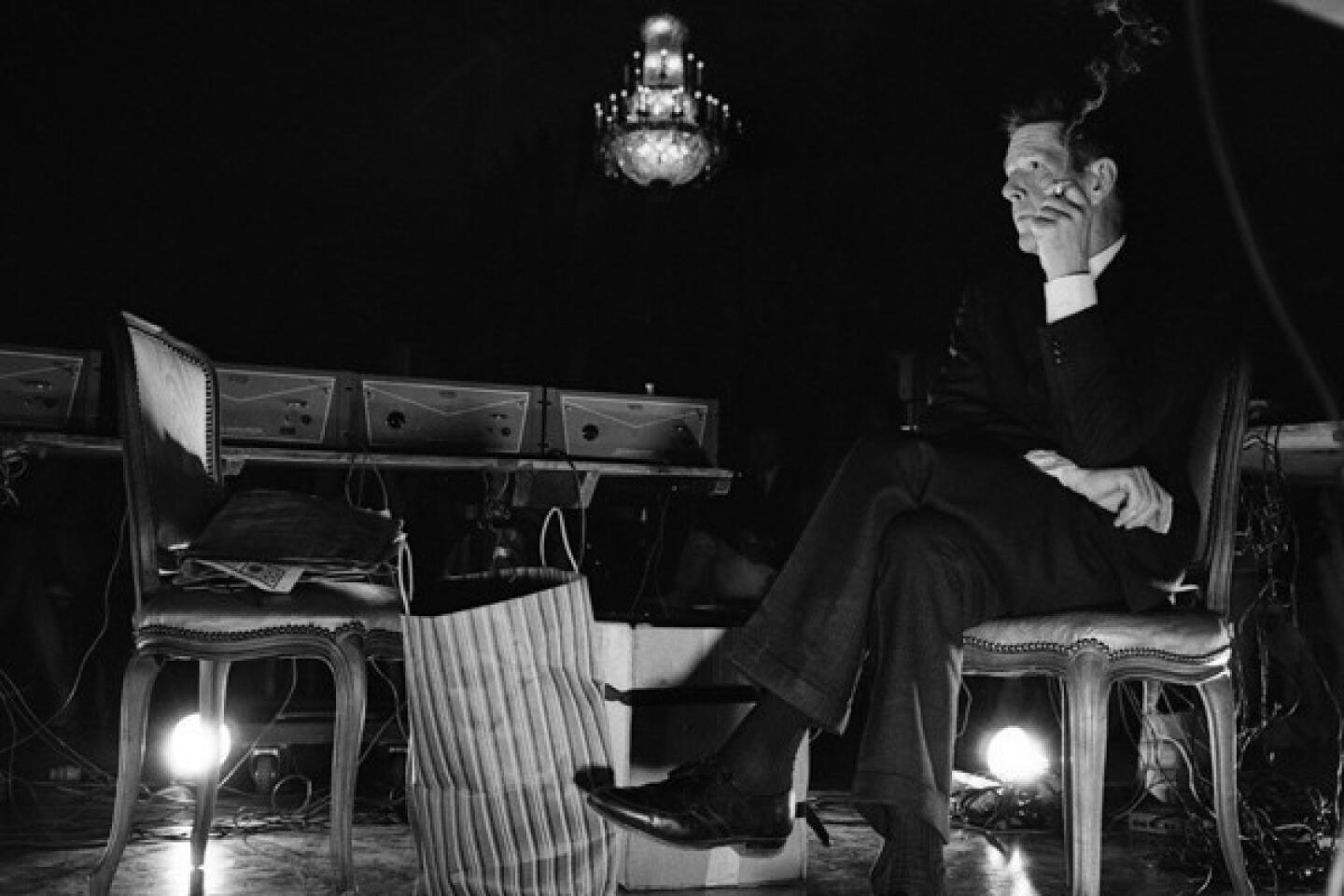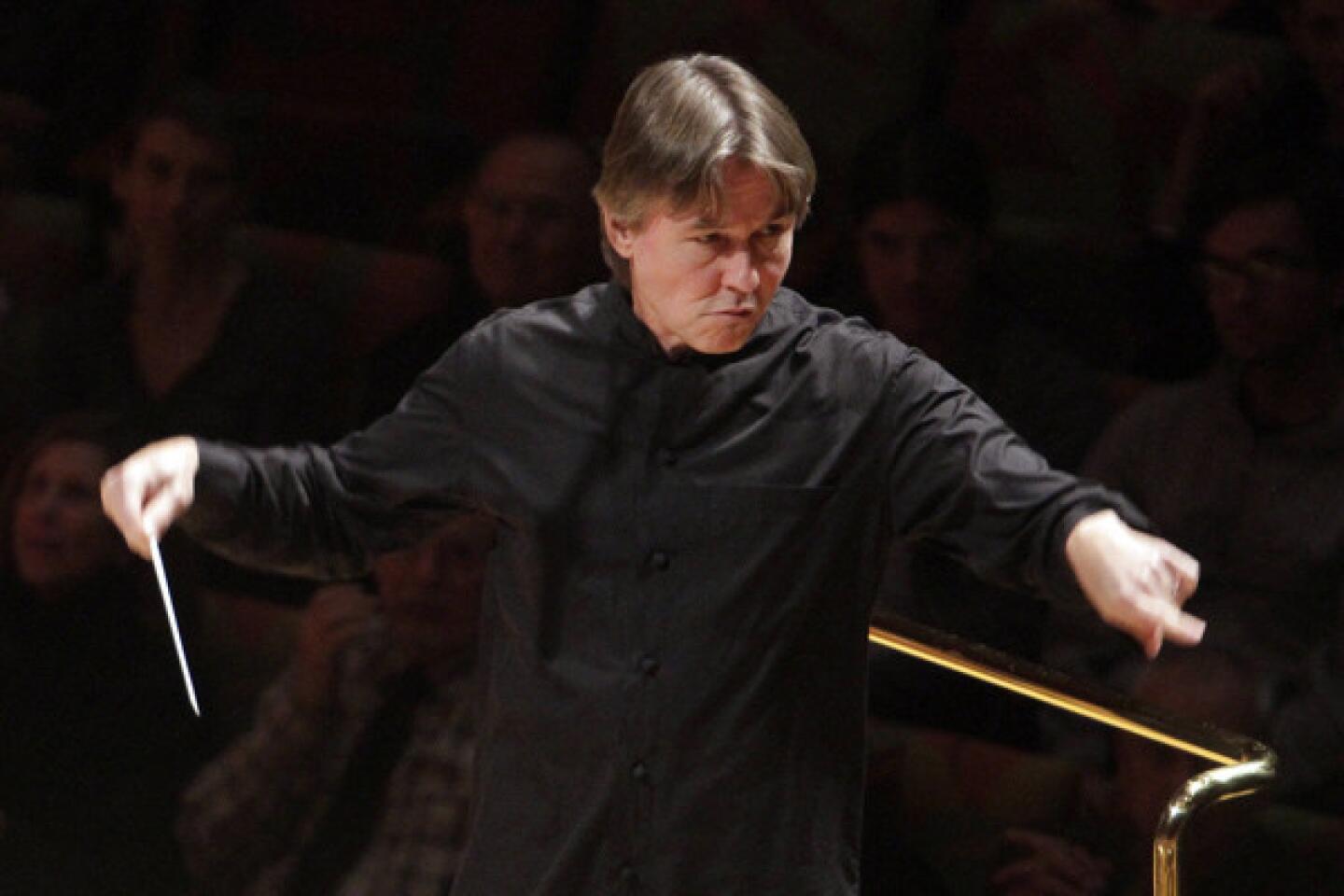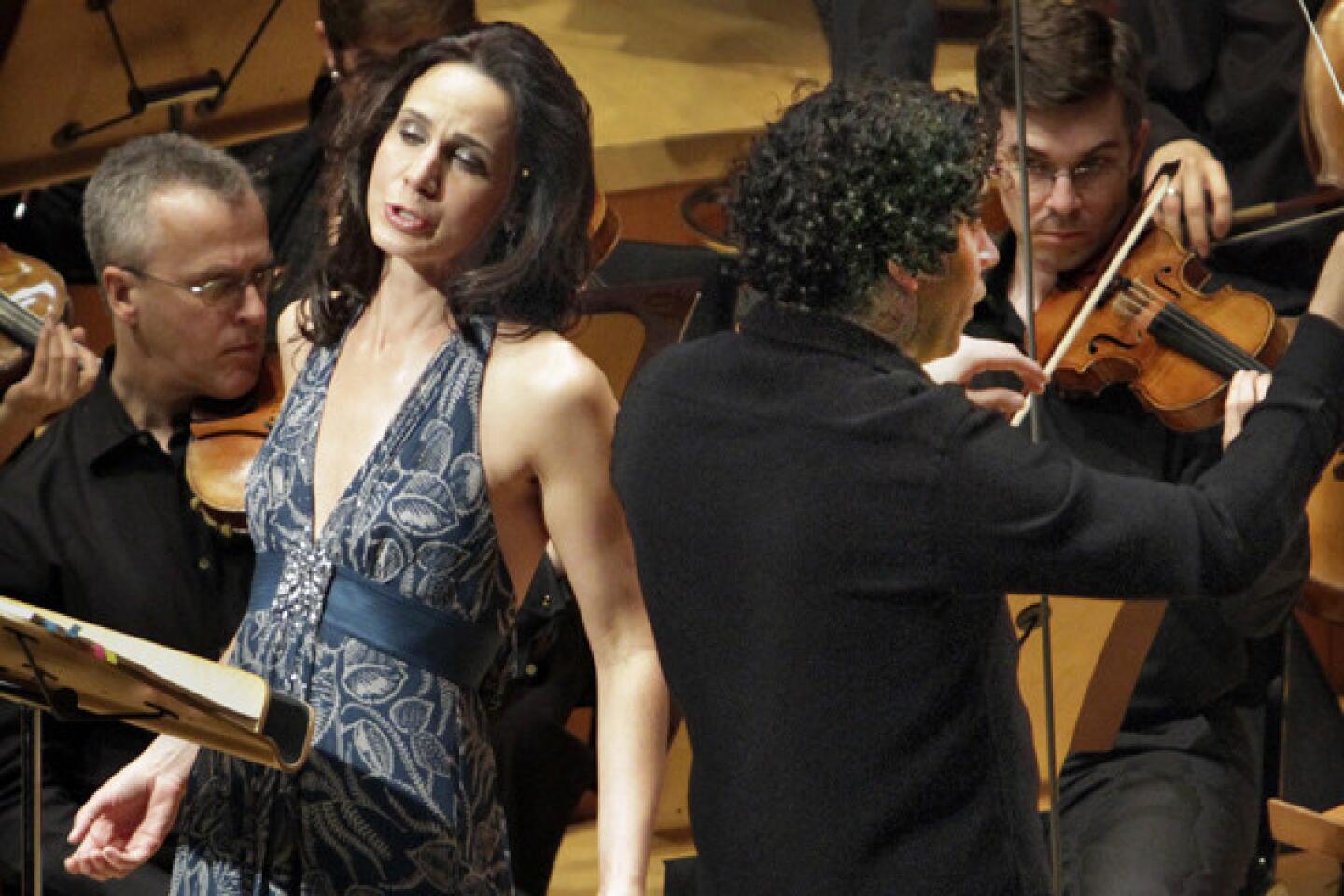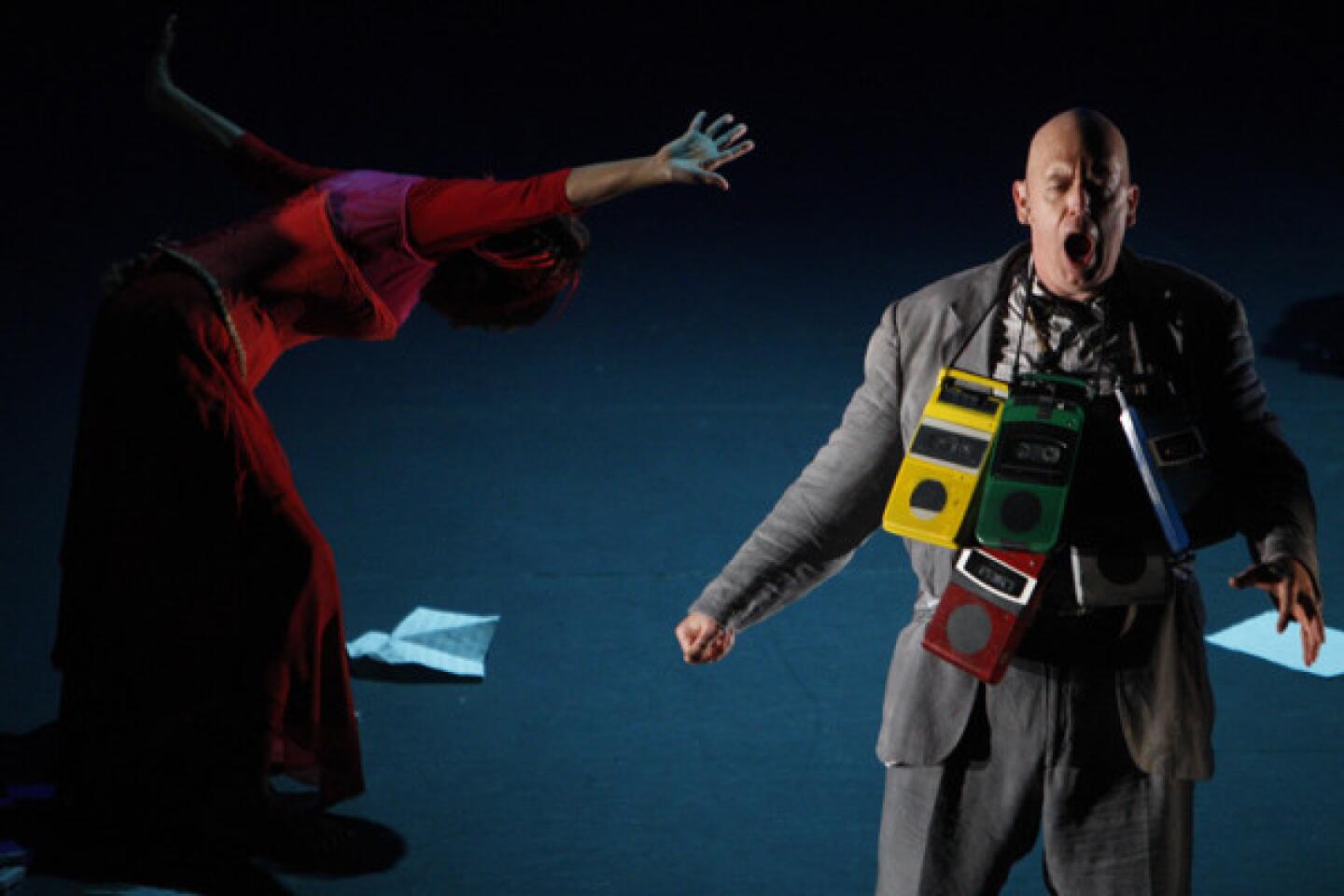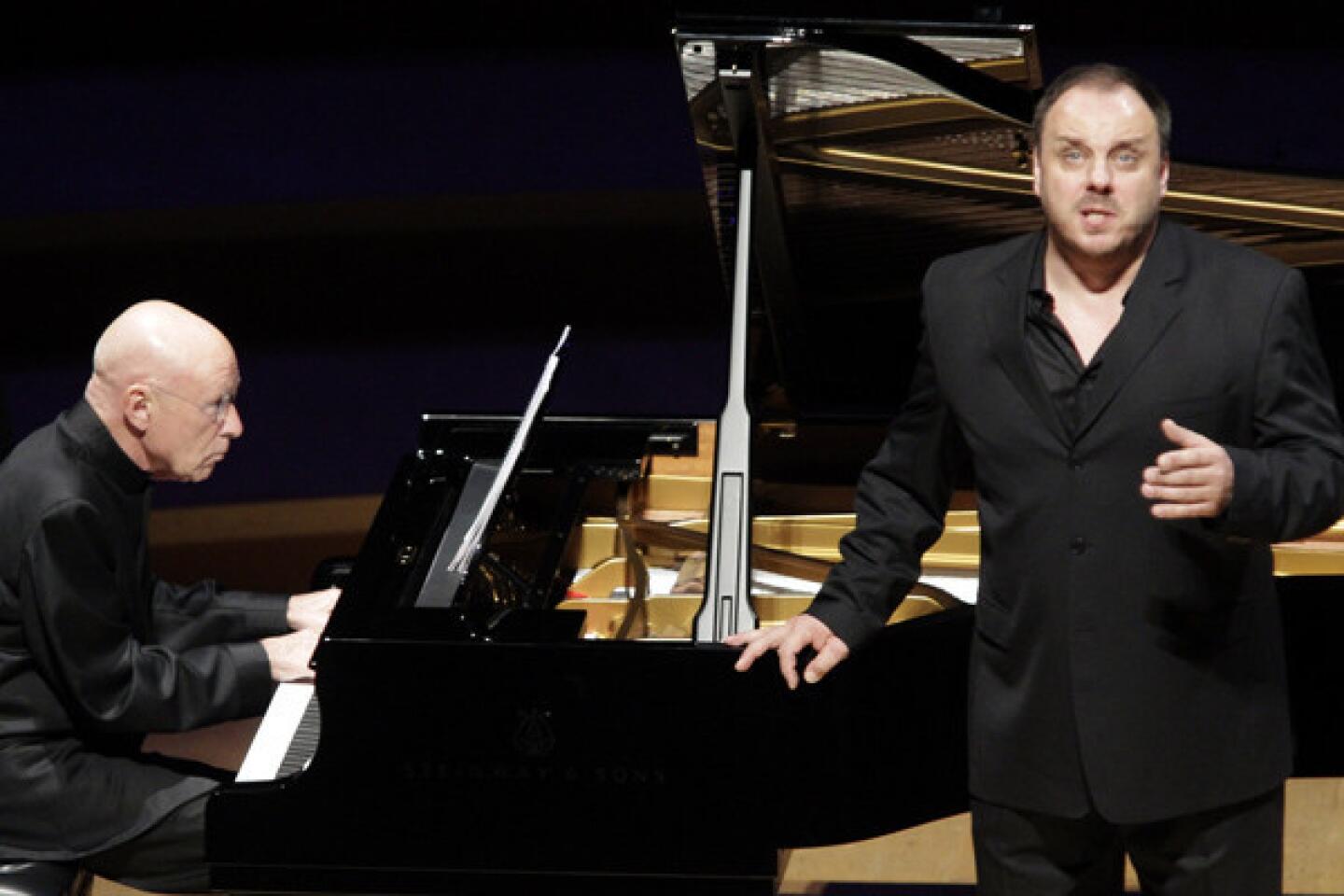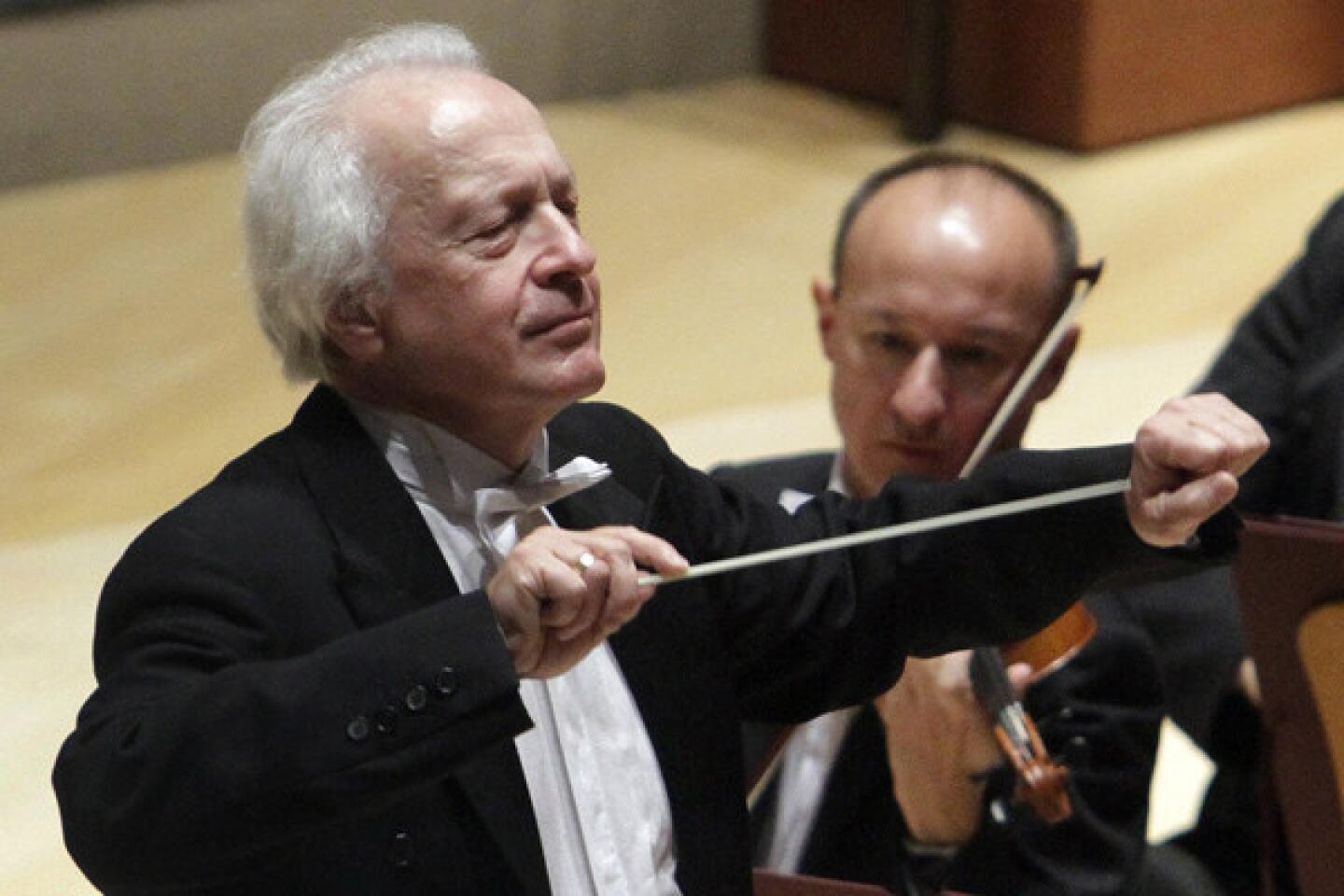2012 in review: A rebel scene arises in classical music world
- Share via
It’s been a year of hand-wringing at arts institutions on both sides of the Atlantic. The world economy has been particularly effective in scarifying orchestras and opera companies. In the United States, several orchestras are in various states of economic disarray — Atlanta, Indianapolis and Minneapolis being only the worst. Overseas, orchestras in Germany and Britain, opera houses in Italy are dropping like flies thanks to severe cuts in public funding.
What’s to be done? I would recommend stressed-out arts administrators crash a party in a Brooklyn bowling alley on Tuesday night. At Melody Lanes, the International Contemporary Ensemble will be celebrating its 10th anniversary. It is one of several start-up ensembles that have been giving a whole new luster to the music scene.
Earlier this month I happened to hear ICE in New York at Columbia University’s Miller Theatre. Two days later I caught the final concert of a younger L.A. outfit, wild Up, as it wound up a residency at the Hammer Museum. The audiences weren’t terribly large for either concert. But in very different ways, these ensembles exemplify the irrepressible urge to make music that matters and to find ways of doing it that radically upend old institutional models.
LIST: Best of classical music in 2012 | Mark Swed
ICE is quite a success story. It was founded in 2001 by a 24-year-old flutist, Claire Chase, with $600 in her pocket. Today ICE has a budget of more than $1 million, and Chase was named a 2012 MacArthur Fellow. Despite the group’s unfashionably clean-cut appearance (what new music group still shows up in coats and ties?) and a gum-chewing Chase’s aw-shucks manner, this is a highly sophisticated ensemble, with big-time chops.
Its address is, of course, Brooklyn, but ICE’s scope is far wider than that of a single hip borough, taking on the really challenging music from just about anywhere. The concert that I heard offered two major works by the feisty feminist Austrian Olga Neuwirth, a controversial phenomenon in Europe whose neglect in the United States simply puts us behind the times.
There are no coats and ties for wild Up. The music collective began with a single concert in 2010 in a club. A young conductor, Christopher Rountree, gathered some conservatory students and recent grads who had the attitude that everything is music and that classical music can work just fine in nonclassical venues. The next year the number of concerts increased fourfold. This year, the multiplier was 10, and the venues got somewhat more respectable — Beyond Baroque and the Hammer. But the attitude of mixing pop and classics, of playing uptown and downtown music, has not changed.
The final Hammer blowout on Dec. 8 was a perfect example. It included everything from arrangements of Antony and the Johnsons to Webern. A performance of Morton Feldman’s “Rothko Chapel” may not have been quite ready for a public, but some snappily amplified Respighi (“Spring” from the “Botticelli Triptych”) really cooked. A sensational new wild Up recording of Shostakovich’s Chamber Symphony (which can be downloaded on Bandcamp.com) returns the sense of rebellion to the Soviet composer.
Best of 2012: Movies | TV | Pop music | Jazz | Video Games | Art | Theater | Dance | Classical music
Next up wild Up will an ongoing collaboration with yet another notable L.A. start-up, the adventurous new opera company the Industry. It too performs in outsider venues, its first major production having been the premiere of Anne LeBaron’s “Crescent City” in an experimental space in Atwater, with sets by cutting-edge visual artists. The groups have plans for a spring workshop of a contemporary piece called “(First Take).” Suddenly we have alternative opera in L.A.
Other ensembles are trying new things all over the country. Not all will thrive but an entrepreneurial spirit is in the musical air, and neither the chaos of the euro nor the shenanigans on Wall Street can stop it. The start-ups are too small to fail.
More to Read
The biggest entertainment stories
Get our big stories about Hollywood, film, television, music, arts, culture and more right in your inbox as soon as they publish.
You may occasionally receive promotional content from the Los Angeles Times.
